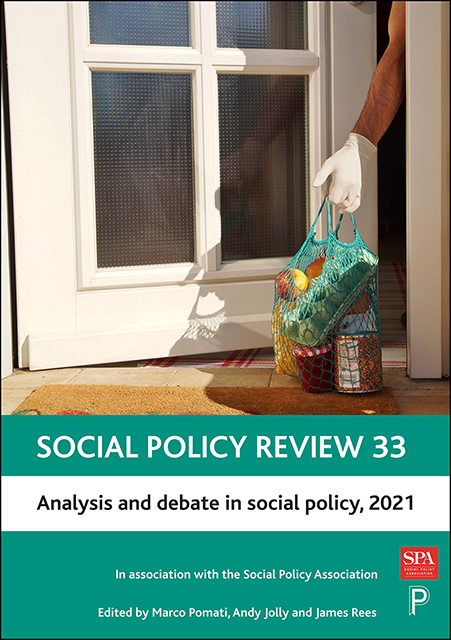Part II - Migration, welfare and public health in Europe
Published online by Cambridge University Press: 14 April 2023
Summary
The UK House of Commons Liaison Committee rarely makes headline news. However, in May last year, amid the first wave of the COVID-19 pandemic, a widely reported exchange took place.
Stephen Timms MP, the Chair of the Work and Pensions Select Committee, asked a question about the plight of a migrant family in his constituency who had been unable to access social security benefits during the pandemic because of their immigration status. The prime minister stumbled over the question – seemingly surprised that the family was ineligible.
Boris Johnson's disbelief at the exclusionary consequences of the no recourse to public funds (NRPF) rule, which restricts access to social security benefits for temporary migrants in the UK, illustrates how migrants who are excluded from social security are frequently forgotten by policymakers and in social policy debates.
The NRPF rule is just one element in an array of exclusionary policies across European welfare regimes that make support contingent on immigration status. The three chapters in this section unpack some of these exclusionary welfare policies and explore how they operate in contrasting national contexts. Chapter 10 by Gago and Chapter 11 by Barry explain how EU regulations interplay with national law, public opinion, and migration and welfare regimes. In Chapter 12, Mallet-Garcia and Nicola Delvino explore the situation of irregular migrants who are subject to exclusionary policies during the COVID-19 pandemic.
In Chapter 10, Gago analyses how fears of ‘welfare tourism’ have been used to restrict access to social security for migrants. Using a comparative approach, Gago examines social policies of successive governments in the UK and Germany in the wake of EU enlargement. Concerns about welfare tourism have been a frequent feature of UK welfare debates, and featured heavily in the Brexit referendum, which took place in a broader context of Eurosceptic thought and hostility to European freedom of movement. Gago notes that political discourse in Germany has been less hostile to freedom of movement, and Euroscepticism has been less widespread. Recently, however, centre-right politicians have moved towards a more critical position on immigration and social security rights. These differences have resulted in a UK focus on restricting residence rights for European Economic Area (EEA) nationals, and a German focus on reducing the financial costs of social security.
- Type
- Chapter
- Information
- Social Policy Review 33Analysis and Debate in Social Policy, 2021, pp. 201 - 202Publisher: Bristol University PressPrint publication year: 2021

